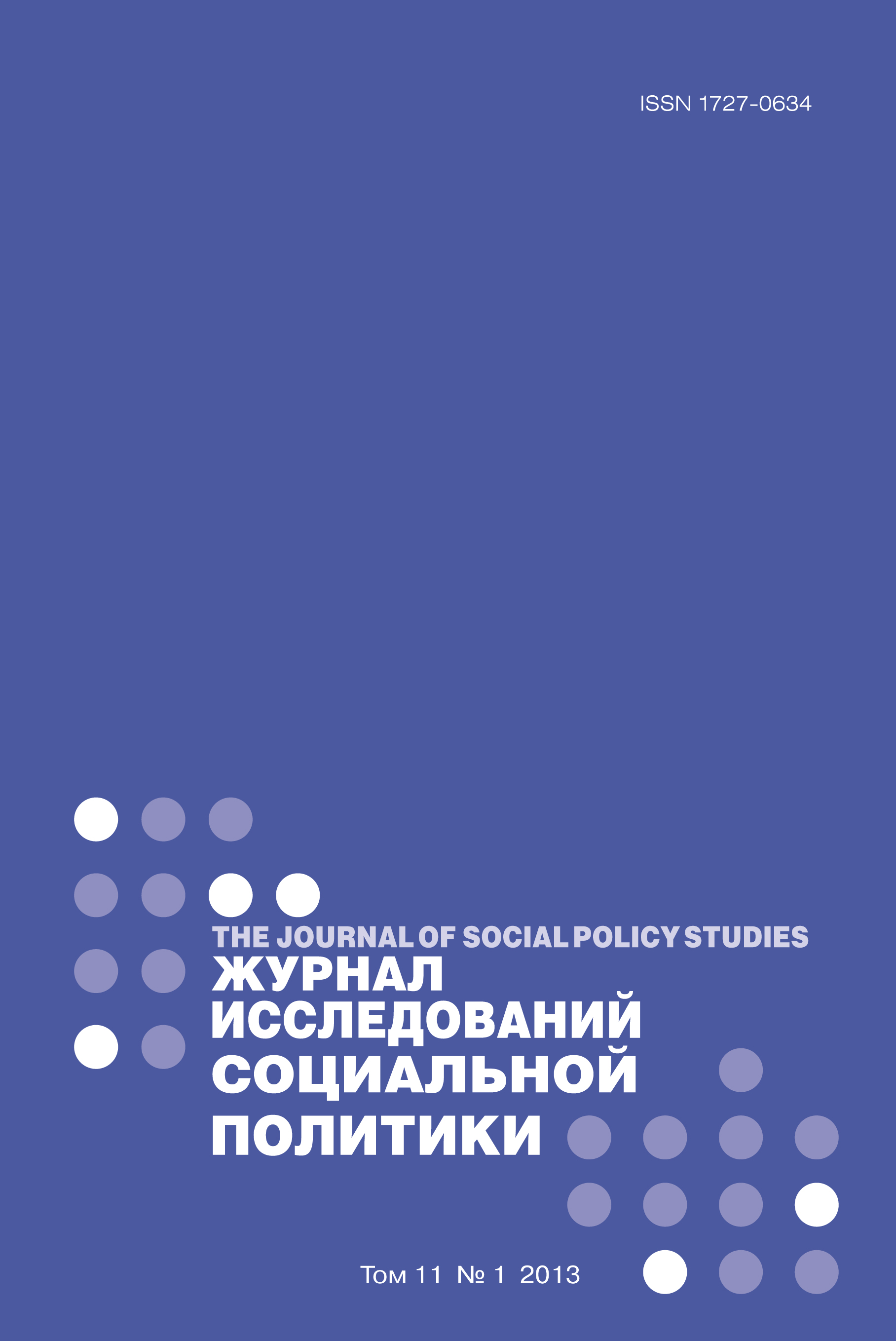Employment Determinants for Mothers in Russia
Abstract
In the developed world, one of the key questions of labour policy regards the return of new mothers to the workplace. A divide can be noticed between those countries that have a well-developed and funded programmes to help such mothers and those who are doing little to legislate on the conflict between employment and motherhood. Russia can be seen to gravitate toward the latter group. This article analyses the problem of combining motherhood with employment in Russia and attempts to highlight the key factors in this and how they interact with each other. This is important, as this area has not enjoyed the attention of researchers in recent years. The authors try to deal with one of the most important questions of the social policy; what determines the choice between either entering the labour market or rejecting this and accepting housewife status. Based on results of regression analysis, made with the help of representative household surveys (from the Russian longitudinal Monitoring Survey of 2000–2009) and the contents of 29 qualitative interviews, five hypothesizes were tested. The main conclusions are the following: having small children (less than 3 years old) considerably decreases the chances of employment for a woman. However, when the child is older than seven the probability of getting working increases significantly. This also applies to the number of working hours offered to the mother. Unexpectedly, the presence of partner has positive effect on gaining and retaining employment. On the other hand, having a partner negatively affects the number of working hours mothers are offered. Another key factor in this question is the relative qualitative share that the mother has in the overall income in the total family budget. There remains a need in Russia for a social policy to support mothers returning to work, while allowing them to be successful in raising their new children. This allows a successful combination of career and family, which is positive for economic productivity of the workforce and the demographic health of the county.















